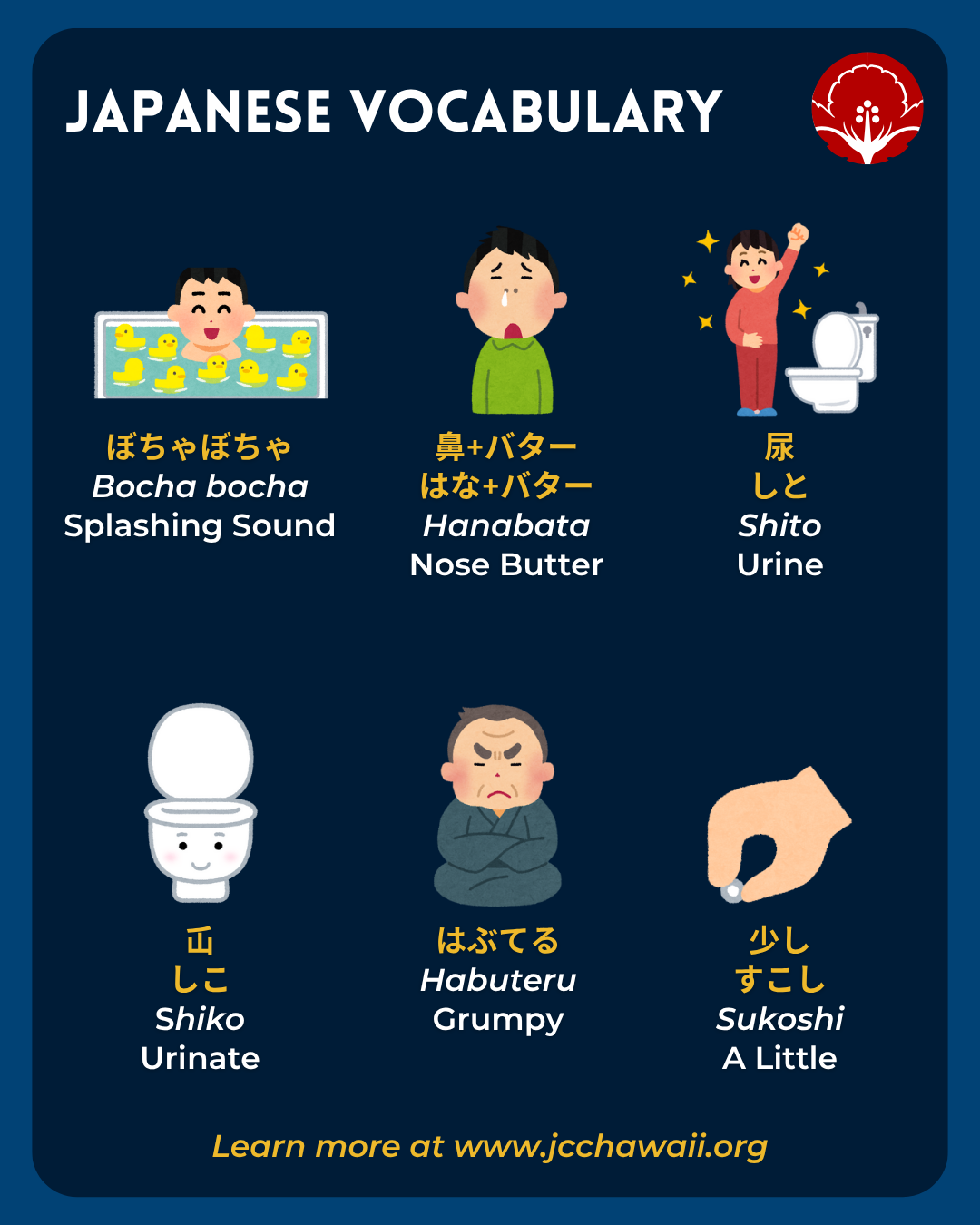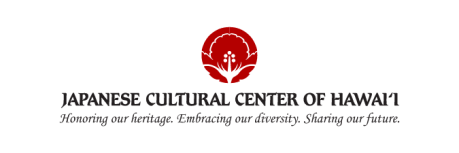| Word | Explanation | Example |
| Bocha (bathe) | The Hawaiʻi Pidgin word bocha originates from the Japanese word bocha-bocha ぼちゃぼちゃ, an onomatopoeia for splashing sounds. It has been shortened and adapted in Hawaiian Pidgin to mean "take a bath" or "bathe." | “Eh, how come you still playing video games!? I told you go bocha!” |
| Hanabada (boogers) | Hanabada means "boogers" or "mucus" in Hawaiʻi Pidgin. It comes from the Japanese words hana 鼻 (nose) and bata バター (from English butter). When "days" is added, it refers to childhood, specifically the time when kids were prone to runny noses. | “Eh, wipe yo hanabada, brah. Steh gross!” “We've been friends since hanabada days!” |
| Shishi (pee) | The Hawaiʻi Pidgin word shishi is derived from the Japanese words shito 尿 (urine) or shiko 屲 (urinate). It's also been suggested that shi shi may have some Portuguese influence, specifically from the word xixi (urinate). | “Hurry up! Go make shishi!” |
| Habut (grumpy) | Habuteru はぶてる (grumpy) in Japanese refers to feeling grumpy or resentful, especially after being offended. It is not standard Japanese. However, it is a word used in the Hiroshima dialect. In Hawaiʻi, it is also spelled "haboot." | “Ho, how come he all habut!?” |
| Skosh (a little) | The word skosh comes from the Japanese word sukoshi すこし. It means “just a little.” | “Can move over skosh kine?” |

